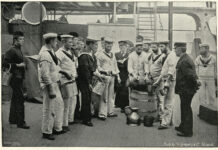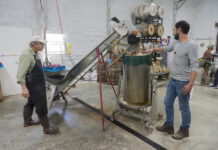There is nothing exciting about business insurance but it is crucial in protecting your interests. As you may have discovered, the property and casualty insurance community has shown reluctance to take on the risks associated with the distilling industry. An important component of any business is finding the right property and casualty and workmen’s compensation coverage. Obtaining these business necessities puts additional strain on new or fledgling distilleries to properly to find the right protection. Additionally, there are not many insurance carriers and brokers who understand the nuances of the distilling business. Subsequently, a policy may be written that do not take into account the true risk found in a distillery. Below are some suggestions to help navigate the tricky waters of obtaining proper coverage.
Finding the broker is a key to getting the best possible coverage at affordable premiums. This broker must have access to insurance markets that will cover distilleries. Once you find the right broker and insurance carrier you need to maintain proper oversight during policy renewal process. Because your business is new your yearly results may vary-hopefully selling more cases and increasing profits than the year before. These increases may result in needed changes to your policy.
Recently, I was introduced to a distillery owner and he had been in business for three years. To his good fortune and hard work, his spirits line had tripled since year one and he was adding additional brands. He knew I had distillery clients and was curious about his own coverage. After a review of his renewal policy for that upcoming year, it was apparent that coverage had not changed since the initial policy. His business interruption and business personal property coverages were now totally inadequate and left the business vulnerable.
Establishing a Good Broker/ Distiller Relationship
Obtaining property and casualty insurance is a time consuming process. Finding the right broker is an important step in making this process easier and more productive for your business interests. You should have common goals of affordable premiums coupled with the most comprehensive coverage. Remember the broker represents your interests not the insurance company’s.
When considering a broker you should ask
- Does he have any distilleries as clients?
- Which markets does he access?
A good broker can help a distillery owner identify potential risk and come up with solutions to eliminate or, at least, minimize problems. A broker, along with his safety engineer can help prevent equipment damage which is costly and may interrupt productivity. Another collective goal is to avoid employee injury and increased medical costs.
What Insurance Companies Look For
Insurance companies want to insure a sound risk. It is important that you have full disclosure with your broker. The broker is there to guide you through the process and look after your best interests with the insurance company. The insurance company in turn will have probing questions about your business to determine if you are suitable risk. Considerations an insurance company may have about insuring a distillery may be:
- experience of the management and distilling teams
- ventilation system
- sprinkler system
- safety program
- dust exposure
- vapor control
- distilling equipment
There may be additional questions. It is important that you are a forthcoming as possible because you may wind up with an unnecessary exposure in your policy.
Understanding the Insurance Market
Many business owners are not aware that the insurance market is just that, a market. Premiums fluctuate depending on the market place. Currently, we are experiencing a ‘soft market” meaning premium prices are low and it is easier to get coverage. If you currently have coverage, this may be a good time to have an additional broker quote your business to gauge whether your current policy is competitive and serving the needs of your business.
In searching for property and casualty insurance your goals should be:
- Obtaining the most affordable and comprehensive coverage
- Developing a sound broker/distiller relationship
- Finding ways to increase safety
- Being an educated consumer








